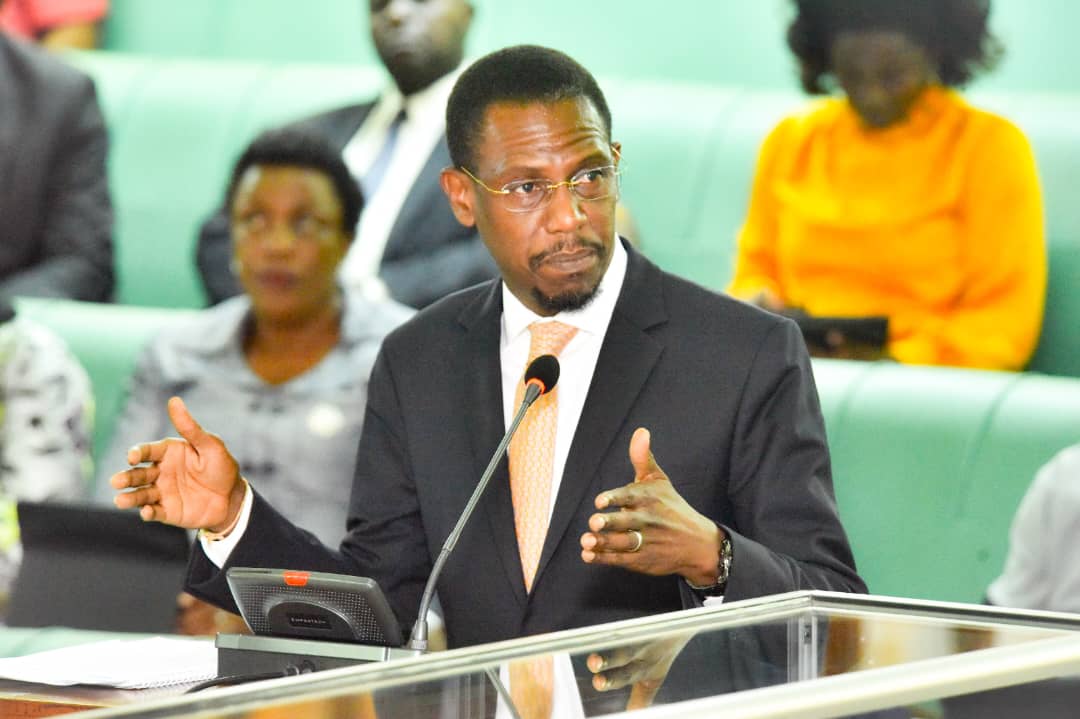News
Attorney General calls for dismissal of petitions challenging Anti-Homosexuality Act
The Attorney General of Uganda, Kiryowa Kiwanuka, has requested the Constitutional Court to reject three petitions that challenge the Anti-Homosexuality Act of 2023, citing their submission in bad faith.
In his statement, Kiryowa asserted that the petitions were not only filed with malicious intent but also aimed to destabilize and undermine the established constitutional social order. He claimed that the petitioners sought court orders to protect an unconstitutional and illegal act of homosexuality.
Kiryowa dismissed the validity of the three petitions, asserting that they lacked merit and were fundamentally flawed. During the hearing, he plans to demand solid evidence from the petitioners to substantiate their allegations.
According to the evidence presented to the court, on February 28, 2023, the Ugandan Parliament granted Asuman Basalirwa, the Member of Parliament for Bugiri Municipality, leave to introduce a Private Members Bill titled the Anti-Homosexuality Bill 2023. The bill was officially gazetted on March 3, 2023, in the Gazette Supplementary number three of 2023. President Yoweri Kaguta Museveni subsequently assented to the bill in May 2023, thereby enacting it as law.
The Anti-Homosexuality Act includes severe penalties for engaging in same-sex relations and for involving individuals under 18 years old in homosexual activities.
This legislation primarily targets lesbian, gay, bisexual, transgender, and queer (LGBTQ) individuals and criminalizes their behavior. It not only imposes a 20-year prison sentence for “promoting” homosexuality but also mandates the death penalty for those convicted of aggravated homosexuality.
After the bill was assented to by the President, activists, senior lecturers from Makerere University, and transgender individuals filed three separate petitions challenging the Anti-Homosexuality Act. These petitions were jointly submitted by a total of 18 petitioners.
The first petition, filed on May 29, 2023, included eight activists and the Civil Society Organization Human Rights Awareness and Promotion Forum (HRAPF), represented by Executive Director Dr. Adrian Jjuuko.
The second petition, filed on May 30, 2023, involved six LGBTQ activists, journalist Andrew Mwenda, and Members of Parliament Fox Odoi Oywelowo (West Budama MP) and Paul Buchyana Kwizera (Kisoro Municipality).
The third petition was filed by Lawyer Robert Rutaro. In all three petitions, the petitioners argued that the Anti-Homosexuality Act was hastily passed without proper consultation with the public, thus violating parliamentary procedural rules.
The petitioners contended that the law’s implementation would infringe upon the right to privacy between consenting adults engaged in same-sex relations. They also argued that the law violated fundamental constitutional rights such as freedom of the press and expression.
Furthermore, some petitioners claimed that section 6 of the Homosexuality Act, which criminalizes same-sex acts between consenting adults, should be nullified due to its broad and vague language.
Additionally, they requested the court to invalidate section 7 of the Act, which requires authorization from the victim or court before publishing any material that reveals the victim’s identity and personal circumstances. They argued that this provision unjustifiably restricts the public’s right to information, press freedom, and freedom of expression during public trials, undermining judicial independence and discretion.
The petitioners highlighted various violations of constitutional rights, international laws, and financial mismanagement, emphasizing the potentially far-reaching consequences for taxpayers.
The Attorney General responded to each petition individually, relying on affidavits sworn by MP Basalirwa.
Basalirwa argued that Uganda follows a dualist approach, requiring international conventions or treaties to be domesticated through legislation passed by Parliament. The interpretation and application of these laws must align with the Ugandan Constitution.
“I am aware that the right to privacy and the right to freedom of expression, thought, assembly, and association are subject to limitations and do not grant immunity from state interference when individuals engage in unlawful acts,” stated Basalirwa in his opposing affidavit against the petition led by Fox Odoi.
Basalirwa emphasized that all rights subject to limitations should align with the Constitution’s national objectives and principles, promoting cultural values inherent and acceptable to society.
The government denied the petitioners’ claims that the Anti-Homosexuality Act imposed a financial burden on the consolidated fund. They argued that the certificate of financial implication obtained in support of the law was acquired in compliance with the Finance Management Act.
Furthermore, the government contended that the constitution prohibits sexual practices, and even consenting adults cannot consent to illegality. They maintained that anyone engaging in prohibited acts would face prosecution, and if the act constituted aggravated homosexuality, the penalty would be death.
Basalirwa’s affidavit responded to Dr Adrian Jjuuko’s NGO petition, stating, “I am aware that sexual practices between persons of the same sex are dehumanizing, inhuman, and undignified, contrary to other human rights guaranteed under Chapter Four of the Constitution of the Republic of Uganda.”
Basalirwa further emphasized that under Ugandan law, consent does not justify unlawful sexual activities, including incest, prostitution, bigamy, and elopement. Therefore, the Attorney General argued that the petitions lacked merit and the petitioners were not entitled to the relief they sought.
The Constitutional Court has yet to schedule a hearing for the case. In 2014, the court previously invalidated the Anti-Homosexuality Act on procedural grounds after determining that it had been passed without the required quorum in Parliament.
Via URN





































